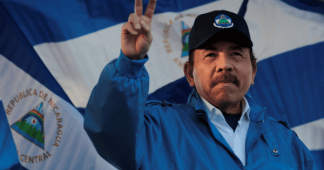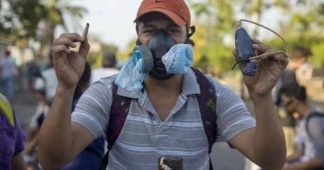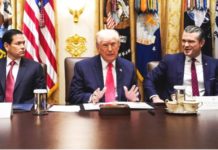by Tom Ricker
O
The Nicaragua Investment Conditionality Act has been floating around congress since 2015. The main idea behind the bill is to direct the U.S. Executive Branch to use its voting power in multilateral lending institutions to block any new loans for Nicaragua until a set of reforms regarding elections and transparency is implemented.
The latest version of the bill passed in the U.S. House of Representatives in October of 2017. A companion bill was then introduced into the Senate by Ted Cruz (R-TX). This Senate version (S. 2265) was similar to the House version, but added provisions for investigation into the activity of “other regimes” in Nicaragua – principally Venezuela and Russia. This version of the NICA Act was sent to the Senate Foreign Relations Committee where it sat with no action until September of this year.
During the last week of September, NICA Act was given new life with a companion bill introduced by Robert Menendez (D-NJ), called the Nicaragua Human Rights and Anti-Corruption Act of 2018 (S. 3233). The new bill was voted out of the Senate Foreign Relations Committee on September 26, and is heading for a floor debate some time soon. The twist is that Menendez’s original bill was fused with the NICA Act in this latest version, creating a broad set of sanctions that will impact Nicaragua’s access to international financial institutions while also punishing individuals in Nicaragua.
Specifically, the new bill:
- Directs the Executive to use the influence of the U.S. government to oppose the extension of new loans or agreements with Nicaragua through the World Bank, Inter-American Development Bank and the International Monetary Fund;
- Calls for sanctions under the International Emergency Economic Powers Act – which allows the U.S. executive to seize assets of individuals from other countries it deems responsible for human rights abuse or political corruption, and also employ other sanctions;
- Calls for restricting visas for travel to the United States to individuals in the Nicaraguan government and their associates;
- Calls for annual reporting on the state of Nicaragua’s democracy;
- Directs agencies to create a “civil society” engagement strategy – which in the current context largely means expanding support for groups in opposition to the government;
- Is enacted until 2023, although provisions can be waived if Nicaragua adopts reforms that satisfy U.S. policy-makers.
If passed, the U.S. government will be committing itself to increased intervention that would do serious harm to Nicaragua’s economy – already reeling from a collapse in investment and capital flight. By incorporating the International Emergency Economic Powers Act the bill leaves the path open for the President to go even further than individual sanctions in punishing Nicaragua.
The Nicaragua Human Rights and Anti-Corruption Act of 2018 (S. 3233) is a bad idea. It goes much further than the original NICA Act, which we have opposed from the beginning. It has the potential of doing grave harm to the people of Nicaragua, and seems intent on deepening the polarization in the country at a time when the United States, if it is to do anything, should be limiting its role to encouraging dialogue (without imposing predetermined outcomes on the dialogue – as the U.S. has done thus far). This new bill will simply make it that much harder for groups to come together and reach a political settlement to the ongoing crisis.
You can call your Senators at the Capitol Hill Switchboard at (202) 224-
Published at https://www.quixote.org/nica-act-2-0-its-back-and-even-worse-than-before/











